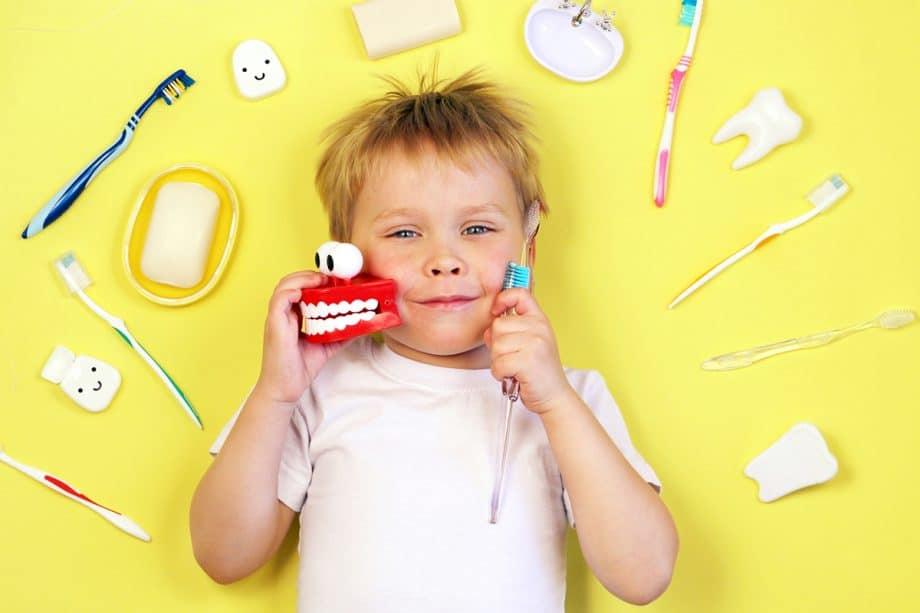As parents, we eagerly await our child's first tooth, capture its every milestone, and celebrate each with glee. However, it's not just the arrival of the first tooth that is significant, but the loss of baby teeth as well.
While losing baby teeth is a natural process, losing them too early can seriously affect a child's speech development, oral health, and overall well-being. From difficulty in pronouncing certain words to the misalignment of permanent teeth, the impact of early tooth loss can be far-reaching.
In this article, we'll explore the consequences of losing baby teeth early and why it's crucial to take the necessary steps to prevent it. We'll also discuss the role of orthodontics in addressing the dental problems caused by early tooth loss and how they can help restore your child's oral health. So, whether you're a parent or a caregiver, buckle up and get ready to learn more about the importance of preserving your child's baby teeth.
Overview of Baby Teeth
Baby teeth, also known as primary teeth, are the first set of teeth that children develop. They typically start to erupt between six and twelve months of age and continue until around age three.
By age three, most children have a full set of twenty baby teeth. Baby teeth are important for several reasons. They help children learn to speak, chew, and smile. They also serve as placeholders for permanent teeth, which begin to develop around age six.
Importance of Baby Teeth for Speech Development
Baby teeth play a critical role in speech development. They serve as placeholders for permanent teeth and help in the proper development of the jaw and facial muscles, which are essential for clear speech. As children learn to speak, they rely on their teeth to produce certain sounds.
For example, the "th" sound in words like "think" and "thumb" requires the top front teeth to touch the tongue. Without these teeth, children may struggle to produce the correct sounds, leading to speech delays and difficulties.
Here are some ways baby teeth contribute to speech development:
- Correct Jaw Alignment: Baby teeth help in maintaining proper jaw alignment, which is crucial for speech development. When the baby teeth are lost prematurely or are not aligned properly, it can lead to misalignment of the jaw, resulting in speech problems.
- Formation of Sounds: Baby teeth play a vital role in the formation of speech sounds, particularly the consonants that require the tongue, lips, and teeth to work together. For example, the sounds of "f", "v", "s", "z", and "th" require the proper placement of teeth and tongue to produce the correct sound.
- Speech Clarity: Properly aligned and healthy baby teeth help in the proper enunciation of words, making speech clear and understandable. Children with dental issues, such as cavities or missing teeth, may have difficulty pronouncing certain sounds or words, which can affect their ability to communicate effectively.
The Role of Baby Teeth in Proper Chewing and Digestion
Baby teeth are also essential for proper chewing and digestion. When children chew their food, the teeth break it down into smaller pieces, making it easier to swallow and digest. Proper chewing and digestion are critical for overall health and well-being, as they help the body absorb essential nutrients from food.
Here are some ways baby teeth contribute to proper chewing and digestion:
- Chewing: Baby teeth help in the initial breakdown of food into small pieces. This process is essential for digestion as it allows digestive enzymes to act more efficiently on the food, breaking down complex carbohydrates, proteins, and fats into simpler molecules.
- Speech: As mentioned earlier, baby teeth play a crucial role in speech development. Clear speech requires proper functioning of the tongue and jaw muscles, which is facilitated by healthy and properly aligned baby teeth. Children with dental issues, such as missing or crooked teeth, may have difficulty chewing properly, leading to speech problems.
- Nutrition: Proper chewing of food is essential for the absorption of nutrients from the food. If food is not chewed properly, it can lead to digestive problems and malnutrition. Baby teeth help in breaking down food into smaller pieces, which allows for better absorption of nutrients from the food.
- Development of permanent teeth: Baby teeth act as placeholders for permanent teeth. They help in maintaining the proper spacing and alignment of teeth, which is essential for the proper development of permanent teeth. If baby teeth are lost prematurely, it can lead to problems with the development of permanent teeth, affecting proper chewing and digestion.
Effects of Losing Baby Teeth Early
Losing baby teeth too early can have several negative consequences. Without baby teeth, children may have difficulty speaking, chewing, and digesting their food. They may also experience emotional distress, as they may feel self-conscious about their appearance. In addition, early tooth loss can lead to orthodontic problems, as the remaining teeth may shift to fill the gap left by the missing tooth.
The loss of a baby tooth can cause adjacent teeth to shift, leading to misalignment and overcrowding of permanent teeth. This can result in various orthodontic problems, including crooked teeth, overbite, underbite, and crossbite. In severe cases, early tooth loss can even result in temporomandibular joint (TMJ) disorder, which causes pain and discomfort in the jaw joint.
Treatment Options for Early Loss of Baby Teeth
Fortunately, there are several treatment options available for early tooth loss. One common option is a space maintainer, which is a small device that holds the space for the missing tooth until the permanent tooth grows in.
Another option is a dental implant, which is a permanent replacement for a missing tooth. In some cases, orthodontic treatment, such as braces or clear aligners, may be necessary to correct misalignment caused by early tooth loss.
Prevention and Care for Baby Teeth
Preventing and caring for baby teeth is essential for promoting healthy oral development and overall well-being of children. Here are some tips to help you care for your child's baby teeth:
- Start early: Begin cleaning your child's gums with a soft cloth or infant toothbrush as soon as they are born. This helps to remove bacteria and establish good oral hygiene habits.
- Brushing and flossing: Once the first tooth appears, start brushing it twice a day with a soft-bristled toothbrush and fluoride toothpaste. Flossing should also begin as soon as two teeth are touching. Encourage your child to brush their own teeth as soon as they are able, but supervise and help them until they can brush effectively on their own.
- Diet: Limit sugary and starchy foods, such as candy, cookies, and chips, which can contribute to tooth decay. Encourage your child to eat a balanced diet with plenty of fruits, vegetables, and whole grains, which promote healthy teeth and gums.
- Regular dental check-ups: Schedule regular dental check-ups for your child, beginning around their first birthday. This allows the dentist to monitor the development of your child's teeth and identify any potential problems early on.
- Fluoride: Fluoride helps to strengthen teeth and prevent tooth decay. Check with your dentist or pediatrician to determine if your child is getting enough fluoride, and if not, consider fluoride supplements or treatments.
- Preventive measures: Ask your dentist about sealants or other preventive measures that can help protect your child's teeth from decay.
- Be a role model: Model good oral hygiene habits for your child. Brush and floss your own teeth regularly, and make oral hygiene a fun and positive experience for your child.
Preventing and caring for baby teeth is essential for promoting healthy oral development and overall well-being of children. Start early, brush and floss regularly, encourage a healthy diet, schedule regular dental check-ups, and be a good role model for your child.
Pediatric Dental Services in Attleboro
Losing baby teeth is a natural part of growing up, but it's important to be aware of the potential consequences of losing them too early. Baby teeth play a critical role in speech development, proper chewing and digestion, and the alignment of permanent teeth. Early tooth loss can have several negative consequences, including orthodontic problems and emotional distress.
Fortunately, there are several treatment options available, and prevention and care can go a long way in protecting your child's teeth and oral health. By staying vigilant and caring for your child's teeth, you can help ensure a healthy and happy smile for years to come. For more information on pediatric dental services in Attleboro, contact us at 508-409-6160.


